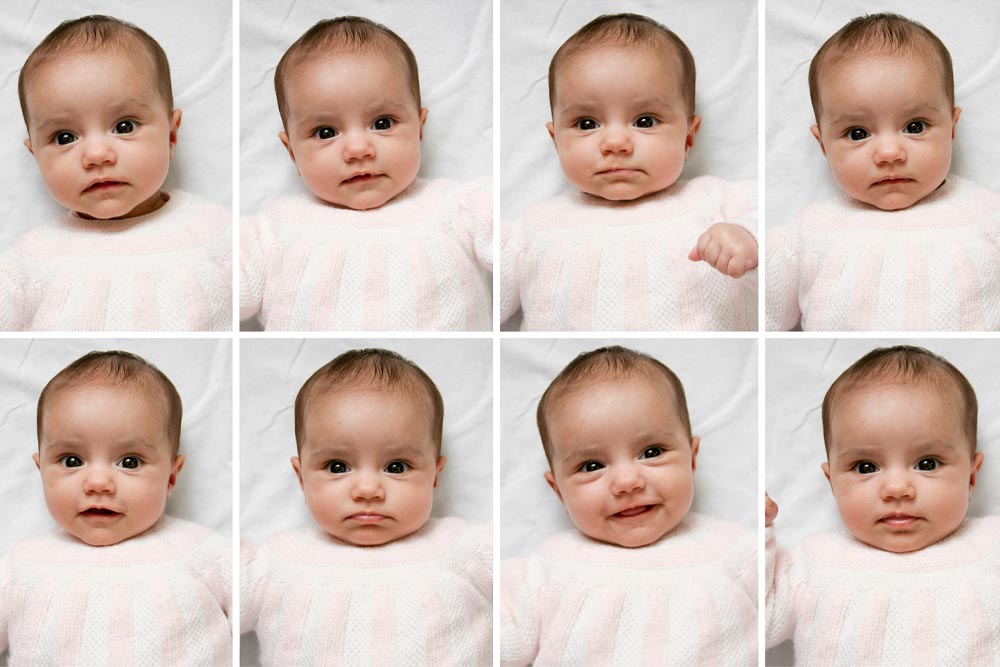Do Babies Need Passports?

Planning a family getaway after baby is born? Not so fast! Make sure to remember your travel documents!
There is a lot of paperwork involved in welcoming a new baby to the world—from filling out information for their birth certificate to registering them for a social security number to adding them to your health insurance. But, for families with relatives out of the country or who simply love to visit new places, you may be wondering: Can baby travel without a passport? And, if not, How soon can a newborn get a passport?
Applying for a passport is a confusing and tedious process for even the most competent adults, so you can imagine the extra hoops parents have to jump through to get their baby or child a passport. It’s a lot of work, so it’s understandable if you’re reading this with your fingers (and toes) crossed, hoping to learn there is a grace period where babies can travel freely without this vital form of identification.
Do Babies Need Passports for International Travel?
Can a baby travel without a passport? Sure—but your destinations are limited. All U.S. citizens, regardless of age, can travel freely without a passport across all 50 states, Washington D.C., and certain U.S. territories, including American Samoa, Guam, Commonwealth of the Northern Marina Islands, Puerto Rico, and the U.S. Virgin Islands.
If you’re traveling to/from Canada or Mexico by plane, your child will need a passport, but if you’re traveling by land or sea (such as driving or taking a ferry), U.S. citizens under the age of 16 do not need a passport. If you aren’t flying to these destinations, keep in mind that you will still need some documentation to prove your little one is a U.S. citizen; this can be an original or copy of their birth certificate, a Consular Report of Birth Abroad, or a Naturalization Certificate. Additionally, if your baby is traveling with only one parent, the U.S. Customs and Border Protection recommends bringing along a letter of consent from the other parent “due to the rise in instances of child abduction in custody cases, and a growing number of children who are the victims of trafficking.”
In any other case of international travel for U.S. citizens, every passenger is required to have a valid passport—even newborn babies.
How Long Does it Take to Get a Passport?
As of October 2023, the average processing time for U.S. passports ranges from five to 11 weeks, depending on your situation (though some applicants have reported much longer waits). Routine passports take between eight and 11 weeks to process, while expedited service passports (which cost an additional $60) take five to seven weeks.
However, it’s not as straightforward as this. If you’re trying to get a passport for a newborn, you also have to factor in the time it takes to receive your child’s birth certificate, which varies by state. You also have to consider how long it will take you to gather all of the other documentation necessary for your baby’s passport application (more on that below) and how far out you have to schedule your application appointment at a nearby post office. Basically, this isn’t something you can do on a whim.
Passport Checklist for Babies
Before scheduling your appointment at the post office, it’s important to gather all necessary documents and understand what is expected of both parents.
Fill out form DS-11. This is your child’s official passport application. You can either print it off and fill it out by hand or use their online tool before printing it off. Regardless, you cannot submit this form online; you have to have a hard copy to bring with you to your child’s passport application appointment.
Evidence of U.S. citizenship. If this is their first passport, this can be your child’s U.S. birth certificate, a Certificate of Citizenship, or a Consular Report of Birth Abroad or a Certification of Birth. Whichever form of evidence you choose, note that you must bring it in paper form (nothing digital), and it must be either an original or certified copy. The document will be returned to you with their passport once it’s been approved and processed.
If you are using a birth certificate, it needs to:
- Have been issued by the city, county, or state of birth
- List your child’s full name, date, and place of birth
- List parent(s) full names
- Lists the date filed with the registrar’s office (must be within one year of birth)
- Have the registrar’s signature
- Have the seal or stamp of the city, county, or state in which it was issued
Photocopy of evidence of U.S. citizenship. It’s not enough to bring the original or certified copy of your child’s proof of U.S. citizenship; you also need to bring a photocopy, which needs to meet the following requirements:
- Clear, legible copy
- On white 8.5” by 11” standard paper
- Single-sided
- Printed in black and white
You can also submit a second certified copy of the evidence if you’d prefer, but that copy will not be returned.
Proof of parental relationship. Original or certified copy of a document that lists the parent(s) or legal guardian(s) of the child applying for a passport. If you’re using your child’s U.S. birth certificate as evidence of U.S. citizenship, that will satisfy this requirement as well. If not, you can also submit a foreign birth certificate, adoption decree, divorce or custody decree, or a court order.
Present ID and photocopy of ID. Each parent or guardian must present one form of identification to the agent during the application appointment and include a copy of the front and back of each ID with the child’s application.
Identification documents can include:
- Valid or expired, undamaged U.S. passport book or passport card
- In-state, fully valid driver’s license or enhanced driver’s license with photo
- Certificate of Naturalization
- Certificate of Citizenship
- Government employee ID (city, county, state, or federal)
- U.S. military or military-dependent ID
- Current valid foreign passport
- Matricula Consular (Mexican Consular ID)
- U.S. Permanent Resident Card (Green Card)
- Trusted Traveler IDs
- Enhanced Tribal Cards and Native American tribal photo IDs
Photocopies of IDs must be on plain white 8.5” by 11” standard paper, single-sided, and the copy should not decrease the image side of the ID (enlargement is OK).
Show parental consent. Both parents or guardians must approve that their child under 16 years old can be issued a passport. To do this, both parents or guardians should go with the child to the application appointment. If one or both parents or guardians are unable to apply in person with their child, additional documents will need to be included in your child’s application (see more here).
Passport photo. One photo of your child for the passport meeting the following requirements:
- Color photo taken within the last six months
- Clear image of your child’s face (no filters)
- No selfies
- No eyeglasses, hats, or uniform clothing (If your child is wearing a hat for religious or medical reasons, you’ll have to provide documentation supporting this, and your child’s face is not obstructed in the photo.)
- Use a white or off-white background without shadows, texture, or lines.
- Sized 2 inches by 2 inches (head must be between 1 – 1 ⅜ inches from the bottom of the chin to the top of the head)
- Free of holes or other damage
- Face the camera directly for a full-face view
- Neutral facial expression with both eyes open and mouth closed (there is some leniency here with babies, but follow their tips in the FAQ section to ensure the photo doesn’t get rejected)
Fees. You’ll have to arrive prepared to pay all of the necessary fees. When you schedule your application appointment, be sure to confirm what types of payment they accept (cash, check, card).
Once you’ve submitted your baby’s passport application, you’ll be able to track its progress as it moves through the system and makes its way back to you. After you’ve received the passport, you and your little one are free to roam the world and fill your passport books with stamps until it’s time to renew—which is every five years for children under 16 years old. And you’ll have to go through this entire process again because you can’t renew kids’ passports online.








